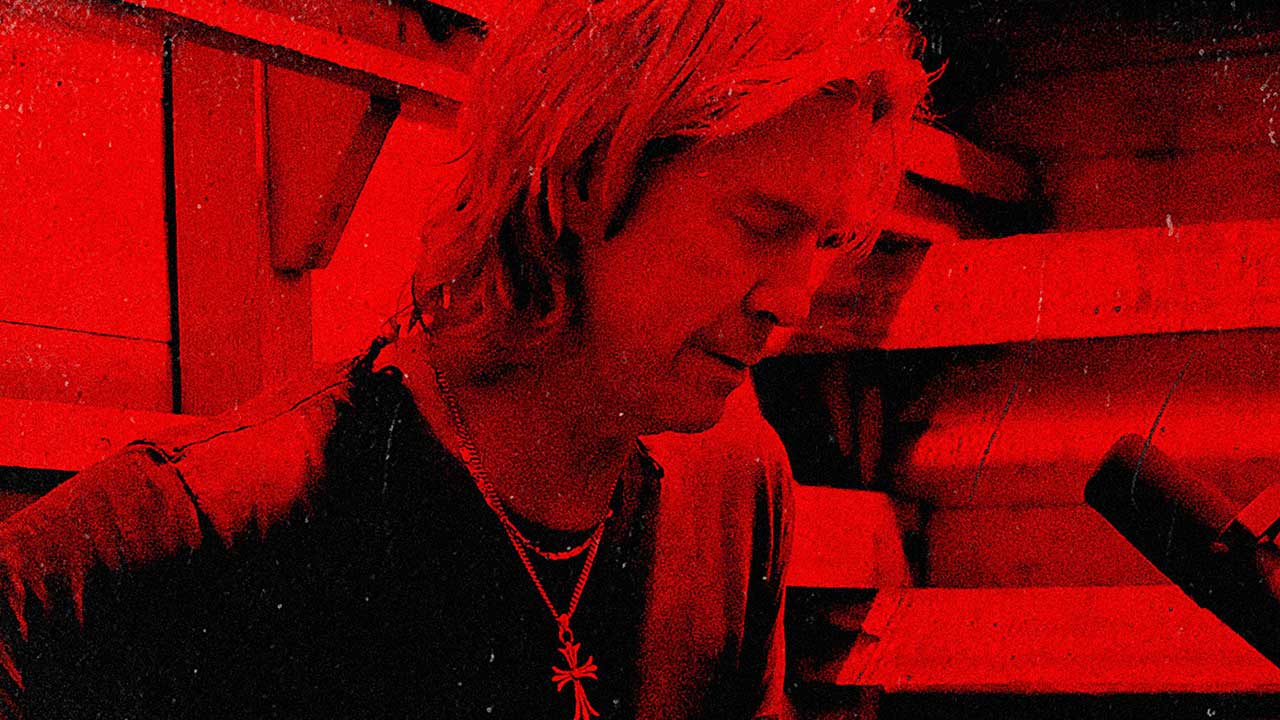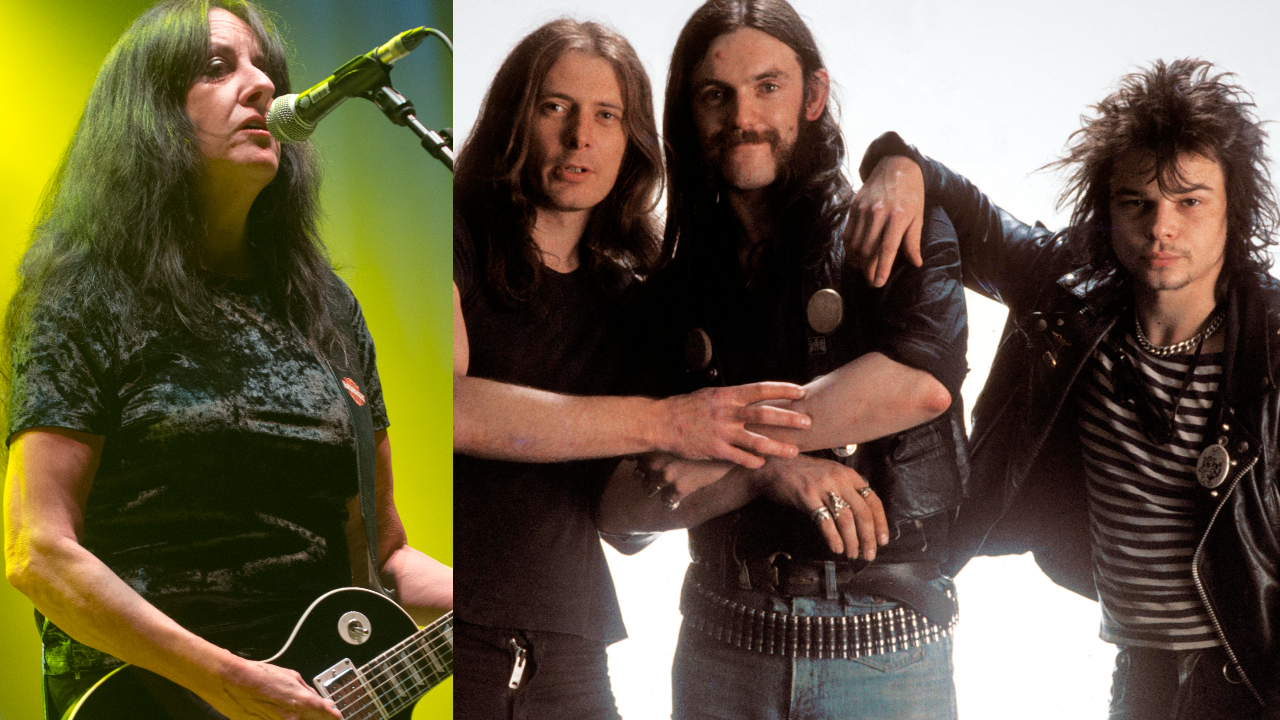Duff McKagan's track-by-track guide to Tenderness
Guns N' Roses bassist Duff McKagan guides us through his solo album Tenderness

If there's one thing to learn from Duff McKagan's new album Tenderness – and from talking to Duff about the album – it's that we should all probably get out more.
In an age where people rarely look up from their timelines, where arguments only have binary solutions, where friends and families are divided over Brexit or Trump or whatever and no one ever, ever changes their minds, McKagan used the Guns N' Roses tour as an opportunity to write an album about the subjects that inspire so much friction. And rather than sit in a hotel room, isolated from reality, he took a different approach.
"I got out, and I talked to people," says Duff. "And I stopped watching the fucking news. And the quality of my life got a lot better. The news will make you think we're all divided, and that everyone hates each other, and if you turn on Twitter it'll magnify that."
Tenderness is a political album - songs about mass shootings and opioid addiction and sexual violence ensure that – but it's not an album that hectors or preaches.
"There is a secondary plan for these songs," says Duff, "which is to bring awareness without judgement. Awareness and a little helping hand where I can. I hope to do something with Cold Outside for a mission in Seattle, and I hope to do something for the coal miners and opioid addiction."
It's a curiously hopeful album about often devastating subject matter, and it's only natural to wonder what chance he has of making any kind of dent. But Duff has found that talking to people the world over, from Kuala Lumpur to Minnesota, has given him more hope. "Humanity is still very much alive," he says. "I know that for sure."
Below, Duff takes us through Tenderness, track by track.
Sign up below to get the latest from Classic Rock, plus exclusive special offers, direct to your inbox!

Tenderness
"I started with an A major with an F over it and an E, and this gave me a very sad chorus, but then the chorus opens up into this this hopeful place.
"When I say, 'Darkest days, the deals we’ve made / On temple grounds, that empty sound, God’s not around', it's because I've read so much history, and every war has been fought with 'God on our side'. But when you're killing each other, or when you're driving a van onto a city street in Paris for God, I don't think God's around for that. I have the strong feeling that God is on neither side when you're killing each other.
"Or your religious organisation will tell everybody to vote a certain way. I don't think God told you to vote that way. You know what I mean? So I think tenderness is the thing we have to rely on here."
It's Not Too Late
"This is a commentary on watching the news. I just wrote down 'Everyone's lying, I need some truth' and that was from watching the news.
"I had a realisation about going out and meeting people on tour, turning off the TV, shutting the screen down and going out to talk to your fellow man. And I think if enough of us do that, things will change."
Wasted Heart
"This was a song I originally recorded with Loaded back in 2008. Shooter Jennings produced this record – he's obviously the secret key to this whole record, instrumentally and sound-wise – and he wanted me to do that song again.
"We did was this whole record with Shooter's band, and he wanted them to get a crack at doing that song. It's kind of a hopeful answer to the song Falling Down.
"It's the most personal song on the record, and is the only time I'm talking about myself on the record. It's about recovering from the drugs and somebody being there to help me through it. That somebody, of course, is my wife,"
Falling Down
"There's a book by J D Vance called Hillbilly Elegy that came out in 2016. He's a guy who grew up in the rust belt of Southern Ohio, Kentucky and West Virginia, and he made it out. He got himself to Ohio State University and then into Yale Law, but his roots are still in this community where coal mining jobs are going away and opioids are taking their place.
"So Falling Down is a commentary. I've been there. I've been through addiction. And yes, it's a sad song, but it's the truth. And I hope that any Guns N' Roses or Loaded or Velvet Revolver fan might listen to this and think, 'You know what? Maybe we can do something.'"
Last September
"On the last Loaded record [2011's The Taking] I wrote a song called Follow Me To Hell. That was a response to a guy who raped and killed a 15-year-old girl in San Diego. I have two daughters and a wife, and this kind of thing pisses us all off, makes us all sick to our stomachs. Follow Me To Hell was what I would do if I got the same room with one of those guys.
"With Last September, I'd read some stories when #metoo was happening – I hate calling it that – of some real bad motherfuckers doing some bad shit, so I fictionalised a story. I swear that song and the lyrics wrote themselves in five minutes, and Shooter really loved the tune.
"It's just a commentary and reaction to the #metoo movement. It is a sad story. But with the refrain of the end I hope to bring a little hope to the female in the story."
Chip Away
"Another song in the vein of It's Not Too Late. Watching the news and thinking, 'oh yeah, they're gonna try all that shit again.' Like with trickle-down economics, which might sound familiar to you.
"In the 90s with Reagan and Thatcher it was trickle-down economics: drop taxes on the very rich, and the money will trickle down. But it doesn't really work. We've seen this all before. In the song it says, 'this too shall pass, if we keep our heads on,' and again, it's about us coming together.
"I know humanity will overcome. There's always a backlash. We've had to be serious since 9/11, and I think there's going to be a point like when punk rock and disco both came out at the same time. People were done with Vietnam War and with the recessive 70s and gas lines and union strikes, and at some point people just said, 'Fuck this. Let's party! Bring it on!'"
Cold Outside
"I just visited a homeless camp in Seattle called The Jungle. It's one of the worst in America, and it's not the kind of place you or I could just walk up into. But I went with a gentleman who used to live there, but is now sober and in an outreach program.
"So a dude who lives up in The Jungle walks past me real fast and he says, 'that guy who walked by? He didn't want you to see him – his eyelid was eaten by a rat when he was nodded out on heroin.' I talked to some people living up there. They fell through a hole and they can't get out.
"I've seen homelessness all over the planet, and I don't make eye contact. I do what we all do. You keep your keys in your hand in case you got to swing. You fucking walk faster. You get in your car and get the fuck out of that. Right?
"I hope to do something with this song bring some awareness and to lessen the stigma. I don't know if I have an answer. I'm not saying I'm a fucking politician. I just hope to do something positive with that song."
Feel
"Feel is a reaction to Scott Weiland, Chris Cornell and Chester Bennington and Prince, and the band did a beautiful job. I hope to do something with the song and Chester's wife's 320 Changes Direction foundation, which works with suicide prevention and drug addiction.
"It's a homage to those people, and to many more who've gone out the same way. These are just the four most recent, and three of them were friends of mine. I was a super fan of Prince, and I cried when he died."
Breaking Rocks
"It's about doing the hard work. We all fuck up, and we all try as hard as we can. You've got to fucking hustle to make a living doing what you do.
"You know, I've worked as a musician – which is basically a 24-hour-a-day job – since I was 15, and when I was first able to live off what I do, I realised my passion and my work were the same thing, and I'm really fucking fortunate.
"No matter what you do, there are still sacrifices you make to put food on the table, and that's very American. And I think it's the most American song on the record."
Parkland
"A funeral dirge. It's a droning commentary on a pretty sickening topic. And I hope it pays respect to the kids of Parkland to the congregation in Charleston, to Columbine and Sandy Hook and Virginia Tech, and that's just to name a few. A very few of a long list."
Don't Look Behind You
"We knew Tenderness be the first song on the record, and when I wrote Don't Look Behind You Shooter said, 'that's has to be the last song on the record. We have it: the beginning and the end.'
"It's the most hopeful song on the record. If you notice, I use some other titles from the record, and it kind of sums up the record, with the last stop being, 'You know what? We're gonna get through this together.'
"Just don't look behind you, don't dwell on the past. Just look forward, and we're gonna be okay."

Online Editor at Louder/Classic Rock magazine since 2014. 39 years in music industry, online for 26. Also bylines for: Metal Hammer, Prog Magazine, The Word Magazine, The Guardian, The New Statesman, Saga, Music365. Former Head of Music at Xfm Radio, A&R at Fiction Records, early blogger, ex-roadie, published author. Once appeared in a Cure video dressed as a cowboy, and thinks any situation can be improved by the introduction of cats. Favourite Serbian trumpeter: Dejan Petrović.
